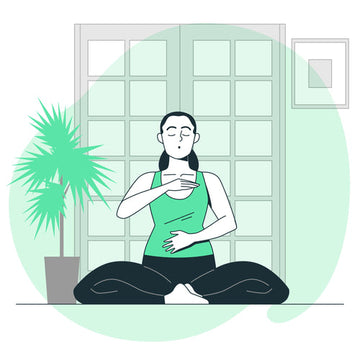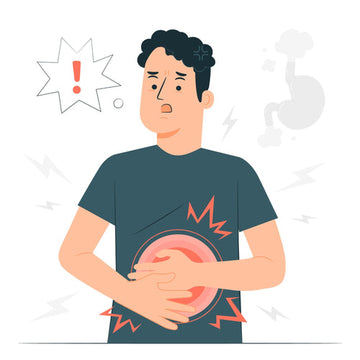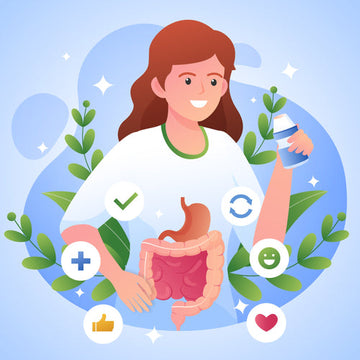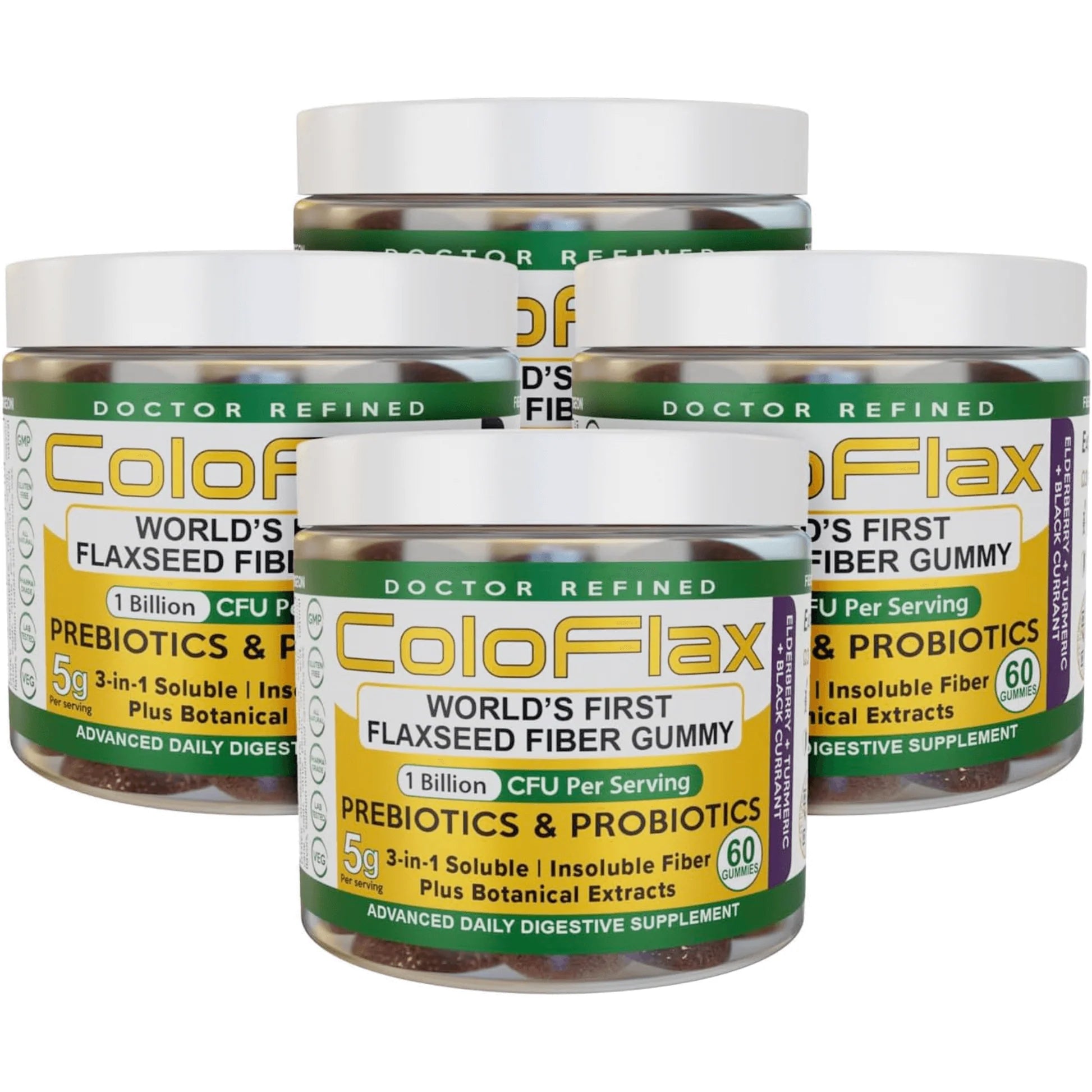Most Americans don’t eat enough fiber. In fact, it has previously been estimated that just 5% meet their recommended daily intake. You should be aiming for around 25g a day, but you won’t necessarily suffer just because you fall a few grams short of that target.(1)
With that in mind, how do you know when you’re eating enough fiber and when you’re falling short? What are the signs that you need to increase your daily fiber intake?
Let’s find out.

You Have Irregular Bowel Movements
Fiber helps to normalize the transit of waste through the colon. It creates bulk and absorbs water, creating larger and softer stools that pass easily.
If you take fiber out of the equation, the waste may struggle to move. It will be smaller, harder, and more painful and problematic to pass. You’re also more likely to experience irregular bowel movements.
If you can set a clock by your bowel movements, and you don’t experience any pain or discomfort when passing them, there’s a good chance you’re getting enough fiber.
If you find that your bowel movements are unpredictable and require a lot of waiting and exertion, you’re probably lacking.
There is a misconception that a lack of fiber only causes constipation. If you also have bouts of diarrhea, you may mistakenly believe that you’re getting too much fiber or that you need to avoid it at all costs to create firmer stools. But a low-fiber diet can also cause diarrhea and increasing your fiber intake could remedy the issue.
By slowing the transition of waste through your colon, fiber can help with constipation and diarrhea and make you regular regardless of your current bowel habits.

You Have Regular Bouts of Constipation
There are many causes of constipation, including low fluid intake, lack of exercise, medication, and a host of diseases. But dietary factors are one of the main causes of frequent bouts of uncomfortable constipation.
So, if you find that you occasionally go for several days without using the toilet and suffer immensely as a result, adding more fiber to your diet could be the solution.
Studies have repeatedly shown that people who eat more fiber are less likely to be constipated, while also showing that increased fiber intake can cure constipation.(2)

You Have an Insatiable Appetite
High-fiber foods take longer to chew, are low in calories, and create a voluminous bulk in your stomach. The result is that you feel full and therefore eat less, potentially satiating your appetite sooner and preventing you from indulging in high-fat and high-sugar treats.
More importantly, fiber is found in nutrient-dense foods like fruits, vegetables, legumes, and seeds. These foods are rich in macronutrients and micronutrients. They are also naturally low in fat and salt.
If you’re not getting enough fiber, it means you’re probably meeting your calorie needs using processed food. A diet rich in highly processed food can create all kinds of health problems, including digestive and cardiovascular issues. And if you’re starving yourself to fall short of those daily calorie requirements, it means you’re constantly battling hunger.
Either way, it’s not a healthy or comfortable way to live, and it could be fixed by loading up on fiber.

You Have High Cholesterol
There are clear links between high-fiber diets and low cholesterol, suggesting that if you increase your fiber intake, you could greatly reduce your cholesterol.(3)
Fiber acts like a sponge, soaking up cholesterol in the small intestine and then expelling it from the body before it can be absorbed. It can also help with the prevention of cholesterol production, limiting how much is created in the first place.
It’s not just a preventative solution, either. If you already have high cholesterol, reducing your intake of saturated fat and increasing your fiber consumption could have a marked effect on your cholesterol levels. In a matter of weeks, you could see life-changing differences.
A meta-analysis conducted in 2016 found that an increase in fiber intake was associated with a cholesterol reduction of between 5 and 10%. That might not sound like much, but it’s enough to reduce the risk of heart disease, and if you add supplements/medications and exercise to the mix, those benefits will compound and the reduction will be even more notable.(4)

You Don’t Have Any Energy
Fiber helps to keep your energy levels stable. Adding a dose of fiber to your meals will stabilize your blood glucose levels and keep them balanced, thus preventing the high peaks and dips that you get with refined sugar and processed food.
Of course, there are many reasons your energy levels could be low, including medication, mental health problems, minimal exercise, and an underlying illness. But diet plays a massive role.
In addition to stabilizing your glucose levels, high-fiber foods like vegetables, beans, and legumes will also provide you with many of the vitamins and minerals you need to stay energized and motivated.

You’re Not Sleeping Very Well
Sleep is another potential cause of low energy levels. You need sleep to reset both mentally and physically, and if you’re not getting enough, you’re more prone to fatigue, depression, anxiety, brain fog, memory loss, and a host of other issues.
Insomnia is probably more common now than it has ever been, as we’re all a little too obsessed with our devices and many of us find it hard to switch off on a nighttime. But your phone isn’t the only thing to blame—your diet can also play a role.
Obviously, a high-sugar and high-caffeine diet is partly to blame, but low fiber can cause sleep disturbances as well.
If your blood sugar levels keep crashing, you might feel more tired during the evening, only to wake up disturbed and groggy during the night or in the morning.
Repeat energy crashes could also cause daytime sleepiness. If you’re tired throughout the day, only to wake up during the evening (just in time for bed), your diet is probably the cause.

You’re Struggling with Your Weight
Fiber has an indirect effect on your waistline.
We’ve already discussed how it can make you feel fuller, thus reducing your cravings for sugary and fatty foods. Weight loss is all about staying in a calorie deficit, and it goes without saying that if you’re eating less and minimizing your consumption of high-energy foods, you’re keeping your calorie intake low.
The energy boost could motivate you to hit the gym, go for a walk, or even just increase your activity levels around the house.
And that’s not all.
The fact that you’re eating higher-quality foods means you’ll be loading up on vitamins, minerals, and antioxidants that could increase your fat-burning potential while reducing hunger hormones.
Forget about fad diets and supplements that promise to magically “melt away the fat”. A little more fiber could be just as effective.

You’re Suffering from Digestive Malaise
Your microbiome plays a huge part in every aspect of your health. If it’s unsettled, you don’t feel like yourself. If you have ever suffered from digestive distress, you will understand where we’re coming from. Your energy levels dip, your stress peaks—you even feel more emotional!
As the old saying goes, “You are what you eat”. By adding lots more fiber to your diet, not only will your digestive and cardiovascular health improve, but you’ll also feel better.

Other Signs that You’re Not Getting Enough Fiber
Flatulence, abdominal discomfort, and even acne have all been linked to low consumption of fiber. What’s more, studies suggest that a diet low in fiber and high in saturated fat will greatly increase your risk of many different chronic diseases, including heart disease, which is the biggest killer in the United States.(5)
As noted above, it’s not just the fiber that provides these benefits, it’s also how you get it.
It’s hard to eat a diet rich in whole foods without meeting your DV for fiber. So, if you’re falling short of the target, it means you’re relying on energy-dense, highly-processed foods, including fast food, frozen meals, packet foods, chocolate, candy, burgers, and French fries.
These foods are high in salt, refined sugar, saturated fat, and other harmful compounds. They cause inflammation, retain water, spike blood pressure and cholesterol, and lead to clogged arteries.

Food vs Fiber Supplements
Many of the studies on the benefits of high-fiber diets have used fiber supplements, as opposed to diets rich in fruits and vegetables. It’s always best to get your fiber from food where possible. It provides you with a mix of soluble and insoluble fiber and will give you plenty of vitamins, minerals, and antioxidants.
Supplements are much easier and provide a viable solution for people struggling to meet their DV. The problem is that many fiber supplements have little nutritional value and just provide you with a hefty dose of soluble fiber.
For something that provides the best of both worlds, check out ColoFlax. It contains a blend of both soluble and insoluble fiber, as well as prebiotics, probiotics, vitamins, minerals, antioxidants, and essential fatty acids.
And as it comes in a delicious and all-natural gummy form, there’s no excuse not to take your daily dose. 1 serving per day is all it takes to notice some positive effects.

Summary: How You Know if You’re Not Getting Enough Fiber
Although all of the above can be signs that you’re not getting enough fiber, they could also be indicative of other diet or lifestyle choices. For instance, while increasing your fiber will help to make your bowel movements more regular, you also need to drink plenty of water. And if you’re taking a lot of sedatives or opioid-based painkillers, even a high-fiber diet may not be enough to encourage daily bathroom visits.
If you are suffering from one or more of the above issues and they don’t subside when you introduce more fiber, book an appointment with your doctor. They can run a few checks and tests to make sure there is nothing nefarious at play. In the vast majority of cases, these conditions are caused by poor diet/lifestyle, but there are some exceptions and it’s important to rule them out.
You can never be too cautious when it comes to your health.
For some top tips on increasing your fiber intake, check out our guide to the best superfoods.






